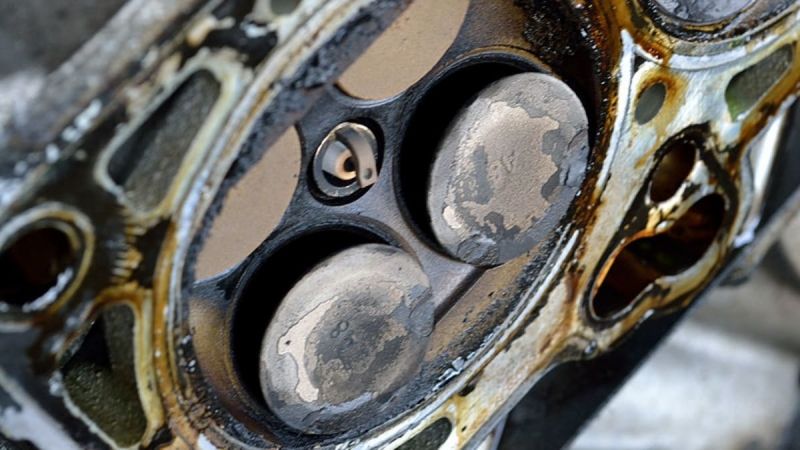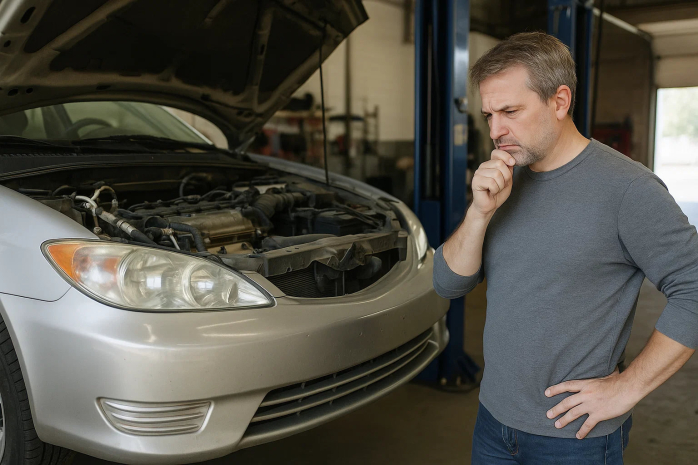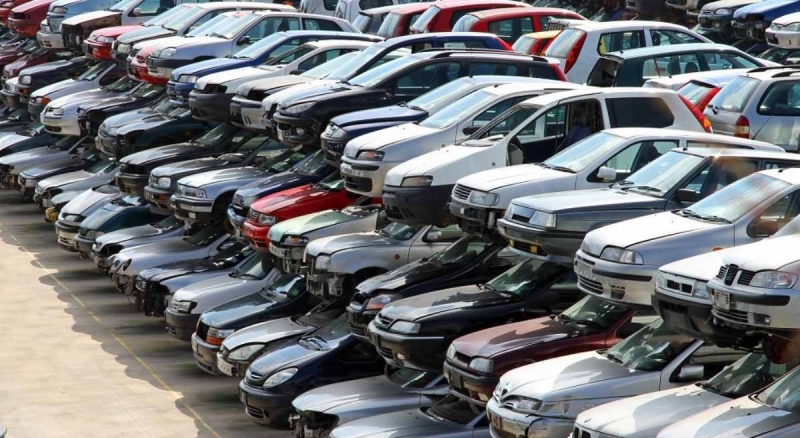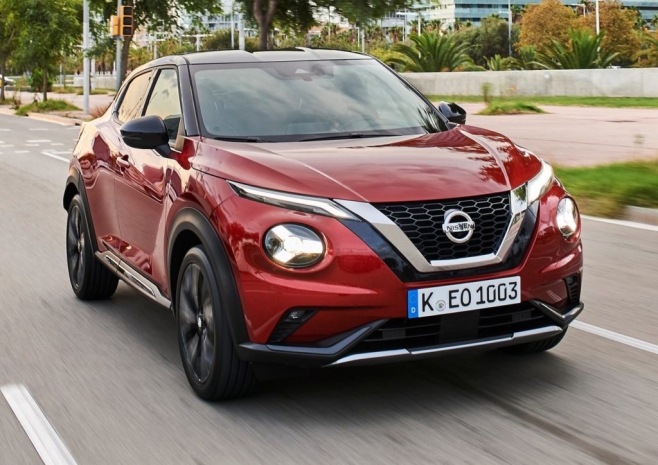An engine locked up can turn your car from a reliable ride into an expensive headache in an instant. One moment, everything seems fine — the next, your machine refuses to turn over and leaves you stuck and wondering what went wrong.
This isn’t just an inconvenience; it’s a serious mechanical failure that often comes with a hefty repair bill. Whether it happens suddenly while driving or after sitting unused for a while, a seized motor is a problem you can’t ignore. But what causes it in the first place? And more importantly, is there any way to fix it without breaking the bank?
If you’re dealing with this issue or just want to avoid it in the future, keep reading. We’ll break down the causes, warning signs, and what your options are when faced with a locked-up motor.
What Is a Seized Engine?
A seized engine represents one of the most serious mechanical failures a vehicle can experience. This condition occurs when the motor's internal components — primarily the pistons and crankshaft — become immobilized and can no longer rotate freely. Unlike other common car troubles that result in poor performance, a seized motor won't run at all.
The seizure typically happens suddenly and catastrophically, though warning signs like knocking sounds or oil pressure warnings might appear shortly beforehand. Modern vehicles equipped with electronic monitoring systems may display warning lights before complete failure, potentially giving attentive drivers a chance to prevent the worst outcome.
How to Tell If Your Engine Locked Up
Several distinctive signs of a seized engine can help you diagnose the problem. Recognizing these symptoms early might save you from extensive damage and costly repairs:
- Motor won't turn over: Your car won't start despite functioning electronics (radio, AC, lights). The starter motor may engage, but the engine itself refuses to rotate. This is the most definitive sign of a seized engine;
- Unusual sounds: Before a complete seizure, you might hear loud knocking, clanking, or cranking sounds. These noises occur when metal components make direct contact due to insufficient lubrication. The sound intensifies when the starter attempts to engage the flywheel against resistance;
- Dashboard warning lights: The oil pressure warning light often illuminates before or during motor seizure. Modern vehicles may display multiple warning indicators as the engine control unit detects abnormal conditions;
- Smoke or burning odor: White smoke from the exhaust or a burning smell indicates extreme overheating. In severe cases, you might even see smoke coming directly from the motor compartment;
- Vehicle stops suddenly: If a seizure occurs while driving, you'll likely hear a sudden loud mechanical noise followed by immediate power loss. The vehicle will coast to a stop and be impossible to restart;
- Visible damage: In extreme cases, internal components may break free and cause visible damage. An inspection might reveal a visible piston, cracked engine block, or oil pan damage;
- Frozen components: For vehicles left unused for extended periods, rust accumulation between cylinders and pistons can "freeze" the motor. Attempting to start will result in the complete immobility of the crankshaft.
Repairs can be costly, often running into thousands of dollars. If fixing it isn’t worth the expense, selling the car may be the smartest option — check out the best way to sell a car with a blown engine.
What Causes an Engine to Lock Up?
Several factors can cause an engine to lock up, but the most common issue is oil-related. Without proper lubrication, metal components overheat and seize. However, other factors can also lead to motor failure:
- Insufficient oil: When oil levels are too low, engine components overheat and can melt together due to increased friction. Regular oil changes are essential for prevention.
- Water intrusion: Water entering the cylinders (often from driving through floods) can cause hydrolocking and prevent pistons from moving. This often requires a complete motor replacement.
- Rust accumulation: Extended periods of disuse or small water leaks can lead to rust buildup, which can seize internal components. Inspect fuel tanks in older vehicles to prevent rust from spreading.
- Oil circulation failure: If the oil pump fails, lubricant won't reach critical components and cause metal-on-metal contact. Signs include overheating and low oil pressure readings.
- Damaged components: Failed pistons, cylinders, or other parts can prevent engine operation. Regular inspections help identify issues before they cause a seizure.
- Vapor lock: In rare cases (usually in older vehicles left in extreme heat), fuel can vaporize in the lines and prevent proper motor operation.
Seized Engine vs. Bad Starter
Often, an engine locked up can be confused with a bad starter. It is important to diagnose the problem correctly since the solution for these problems is different. A locked-up starter may also produce the same symptoms as a frozen motor.
Mechanics can differentiate between the two by manually rotating the crankshaft. Doing this helps eliminate the starter as the cause of the problems. When the crankshaft can be rotated manually, the likely source of the issue is the starter. If the crankshaft cannot be moved, the starter is removed, and another attempt is made.
Luckily, if it’s the starter that’s broken, replacing it is one of the cheaper ways to fix a locked-up motor. If it’s not the starter and the crankshaft cannot be moved, it’s almost certain that your engine locked up, and the repair cost will be incredibly high.
How to Unlock a Seized Engine
Now that you know the causes of a locked motor, you may wonder how to fix this issue. A seized engine fix is possible depending on the cause. The bad news is that it is nearly impossible to free a frozen motor due to a lack of oil. If that is the case, releasing a stuck motor may mean that you have to replace different parts and, in the worst case, the entire mechanism. Lack of oil leads to permanent damage to the elements of a motor. As a last resort, you may have to salvage your car or sell it to a junk car buyer.
If the engine is locking up because of vapor, you will have to let it cool for some time. This allows the gas to convert back into a liquid. Another option is to splash some water on the fuel pump. If a motor is locked up because of water, you may have to pay for a replacement.
If you have a mechanism seized from sitting for too long, there may be too much rust. It is difficult to fix this without spending a lot of money. If most parts are rusted, then repairing won’t work. You will have to get a new engine for your car. If you approach a mechanic as soon as you notice problems, you may be able to salvage your motor.
What Is the Engine Locked Up Repair Cost?
So, how much does it cost to fix an engine that is locked up? The short answer: a lot. The total cost depends on the cause of the failure, the extent of the damage, the vehicle’s make and model, and labor rates in your area.
Repair vs. Replacement Costs
- Minor repairs: If the motor seizure is due to a failed oil pump or minor internal damage, repairs might range from $500 to $1,500. This applies to cases where parts like bearings or seals can be replaced without extensive disassembly.
- Engine rebuild: If the mechanism is rebuildable, expect to pay $2,500–$4,000, including parts and labor. This process involves taking the motor apart, cleaning and replacing damaged parts, and putting it back together.
- Engine replacement: When the damage is beyond repair, a full engine replacement is often the only option. Prices vary widely depending on the machine type:
- Four-cylinder engine – $4,000–$5,500
- V6 engine – $5,500–$7,000
- V8 engine – $7,000–$10,000+
In some luxury or high-performance vehicles, a motor swap can cost upwards of $15,000.
Labor Costs and Regional Variations
Labor is another major factor in the final cost if your engine locks up. Mechanics typically charge $125–$150 per hour, while dealerships or specialty shops can go as high as $250 per hour. Since a motor replacement can take anywhere from 15 to 25 hours, labor alone can add $2,000–$6,000 to your bill.
Real-World Cost Examples by Model
- Honda Civic: $3,300–$8,300 for an engine replacement
- Toyota Camry: $3,960–$9,960 depending on motor type
- Ford F-150: $5,120–$13,120 for a new engine installation
- BMW 3 Series: $8,000–$12,000 due to expensive parts and labor
What to Do If the Price for Seized Engine Repair Is Too High
If you're searching for ways to fix a locked-up engine, you may be facing repair costs that exceed your car's value. In such cases, selling the vehicle might be the most economical solution rather than investing thousands in repairs or replacement.
JunkCarsUs specializes in purchasing vehicles with severe mechanical problems, including those with seized engines. With over 30 years in the industry, they also buy damaged, wrecked, burned, and totaled cars nationwide.
Our selling process is straightforward:
- Contact JunkCarsUs: Call (855) 547-1550 or complete our online form. Provide basic vehicle information — year, make, model, mileage, and condition — to receive an immediate offer;
- Review and accept the offer: JunkCarsUs guarantees competitive pricing with no hidden fees or unexpected charges, ensuring you receive maximum value for your non-functioning vehicle.
- Arrange free pickup: Once you accept the offer, schedule a convenient pickup time. A tow truck driver will arrive as scheduled to remove the vehicle from your property and provide payment on the spot. Same-day service is often available for urgent situations.
Our company also simplifies the paperwork process. The customer service representatives prepare all necessary documentation based on the information you provide and require only your signature to complete the transaction.
Rather than investing in costly repairs that might reach several thousand dollars, converting your seized-engine vehicle into immediate cash offers a practical alternative. The entire process — from initial contact to payment — is designed to be hassle-free to allow you to resolve your vehicle problem without the financial burden of major engine repairs.
Is There a Way to Prevent a Car Engine from Seizing Up?
Yes, you can prevent an engine from seizing. This is way cheaper than trying to unfreeze a motor that won’t start. It all boils down to carrying out regular maintenance on your vehicle. The key is to change your oil regularly. That is because no oil in the motor is the leading cause for an engine to be locked.
Avoid driving through puddles, as this will cause water damage to your motor. Try to lock it if there is a flood so that water doesn’t enter it. Another way to prevent the motor seizure is by not leaving the car in the sun for long periods. Also, try to use your vehicle as much as possible to prevent rust from accumulating within the engine.
In any case, stay attentive to what is happening to your vehicle. Listen for strange sounds or smoke coming out of the motor. Once you notice any problem and think that your engine has locked up, call the mechanics right away. Fixing the issue early on can save you a lot of money. If it is too late to prevent a seized motor, you can sell your car for cash to JunkCarsUs!
FAQ
How much does it cost to fix a seized engine?
The cost of fixing a seized engine depends on the cause and severity of the damage. Minor repairs (oil pump failure or minor part replacements) range from $500 to $1,500. Motor rebuilds cost $2,500–$4,000, while a full replacement runs $4,000–$10,000+, depending on the vehicle. In many cases, repairs exceed the car’s value, which makes it more practical to sell than fix.
What happens when your engine locks up?
When a motor locks up, it’s because one or more of the components can no longer move. This can be caused by water that entered the machine (when it shouldn’t have!), the built-up vapor pressure in the cylinders or a lack of motor oil to lubricate the moving parts. Regardless of the cause, an engine locked up means you have severe damage to your car and an expensive repair bill!
Will insurance cover the seized engine?
In almost all cases, no. Car insurance is meant to cover damage done in accidents. A seized engine is often caused by neglecting to take care of regularly scheduled maintenance, and insurance companies will do everything they can not to shell out money for your repairs.





